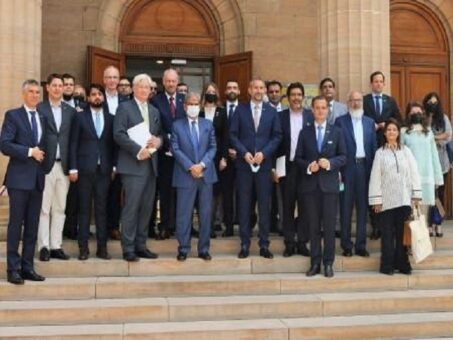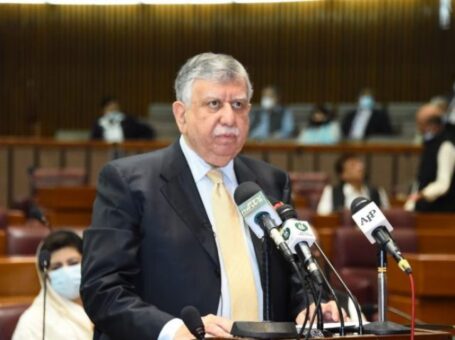KARACHI: A 20-member German Emirati Chamber of Commerce & Industry (AHK) business delegation, which is visiting Pakistan for a firsthand assessment of business and investment opportunities in the country held a meeting today with foreign investors, members of Overseas Investors Chamber of Commerce and Industry (OICCI).
The German Business delegation was accompanied by Holger Ziegeler, German Consul General in Karachi, and First Secretary for Economic Affairs at the German Embassy in Islamabad.
OICCI CEO/Secretary General M. Abdul Aleem, shared a detailed presentation, highlighting the liberal policies in Pakistan for foreign direct investment (FDI) which offers tremendous opportunities for new investment. Commenting on the investment opportunities in Pakistan, Aleem stated: “OICCI members have benefitted by taking a longer-term view which is illustrated by the fact OICCI members have re-invested over US$ 18 billion in the last 9 years which is more than the total FDI inflow into the country during this period.”
The OICCI shared with the 20 members of the German Business delegation the results of the recent Business Confidence Index Survey carried out from May to July 2021 showing a dramatic upswing in Business confidence across Pakistan by 59 per cent since the last BCI survey done in the same period in 2020. “The OICCI members randomly included in the survey are more upbeat as their confidence level has gone up by 108’, Aleem added.
Oliver Oehms, CEO of the visiting German Emirati Joint Council for Industry and Commerce and other members of the delegation enquired about several matters, including potential sectors for investment, special concessions for major investment in Pakistan, incentives relating to Special Economic Zones, major development projects on tourism, the impact of increasing inflation on businesses in Pakistan, tax incentives for putting up export-based industries using imported raw materials and the most reliable government agency to facilitate the potential foreign investors. All the queries were duly responded by the OICCI members at the meeting.



